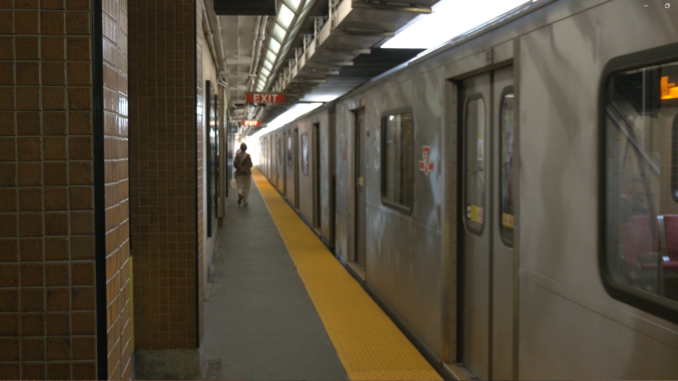
By: Justine Catalan
Toronto’s subway system serves as a lifeline for over a million commuters each week, yet beneath the daily hustle lies a growing issue—the presence of homeless individuals seeking shelter within the transit system. This predicament has escalated since the pandemic, prompting discussions about responsibility, safety, and long-term solutions.
Public Opinion: Divergent Perspectives
Opinions among commuters reflect the complexity of the issue. Some argue that addressing homelessness falls under the TTC’s jurisdiction, believing the transit authority should bear the responsibility. On the other hand, there are those who express empathy, preferring individuals to find refuge within the transit system rather than facing the dangers of outdoor life.
However, concerns about safety and the transient nature of this solution persist among many commuters, raising questions about the viability of utilizing the transit as a shelter for the unhoused.
Opinions are divided – while some oppose the idea, others stand in support of homeless individuals finding refuge within the transit system. 🤔🗣️ pic.twitter.com/XKm0Jb77Ga
— Justine C (@JustineCtln) August 10, 2023
TTC’s Approach: Compassion and Safety
In response to the challenge, the TTC launched a safety initiative centered on compassion and safety. They assert their commitment to providing necessary support to individuals in crisis—those struggling with housing, addiction, or mental health issues—while acknowledging the safety concerns for passengers and staff.

The TTC says “Getting Back to Transit (Move Along)” policy encourage individuals to move from from other stations to Union or Spadina stations where they can access Streets to Home workers. However, if an individual refuses to leave the station, the Transit Control Centre will be contacted and special constables with specialized training will be deployed.
“Our belief is if they are not causing any trouble, we just let them be. But we also have engagements with Street Outreach workers now, the first time ever. That’s something we’ve never done before. We’re transit agency. We’re not a homeless shelter. But we realized there is a need there,” said TTC Spokesperson Stuart Green.
To this end, the TTC has allocated over four million dollars towards the employment of additional street outreach workers and special constables. This marks a shift from previous policies and aims to proactively address the situation by ensuring the protection and aid of those sheltering within the transit system.
The TTC plans to hire an additional 12 special constables for the implementation of the “Move Along” policy.
Controversy and Critique
Despite TTC’s efforts, criticism from organizations like the TTCRiders is loud and clear. A news release issued by the transit advocacy group called the policy a “disturbing plan to hide homelessness and it won’t make the transit safer.”

“We know that Streets to Home workers are not that effective in getting people into sustainable long-term housing. Our stance is that the “Move Along” initiative victimizes unhoused people and it’s quite cruel and unjust. We can’t be increasing police response on the TTC to solve this crisis because it will only exacerbate the problem,” said TTCRiders Spokesperson Chloe Tangpongprush.
The TTCRiders, along with other community groups have released a report of their own calling for a “safety roundtable” that includes representation from various societal groups to develop a long-term safety plan. The report also calls on Toronto’s next mayor to invest in three areas: non-police responses to crisis and violence, housing supports, and TTC service and staff.
The City’s Call to Action
Toronto grapples with a significant homelessness crisis, with over 10,000 individuals currently without homes. The situation demands immediate attention from all levels of government. The TTC says Mayor Olivia Chow and TTC CEO Rick Leary has been actively engaged in ongoing discussions for concrete, sustainable solutions that go beyond short-term policies, calling for collaborative efforts to eradicate homelessness in the city.

Be the first to comment